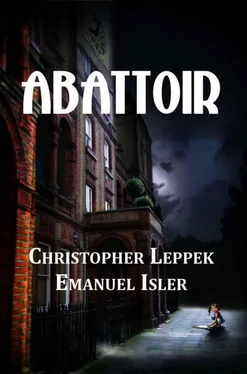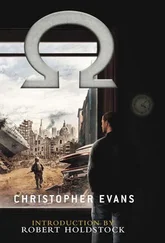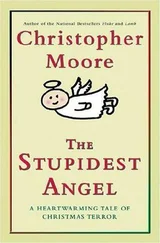He collapsed on the carpeted floor, holding out his hand for the girl to take. Anna took it, looking directly into his blue eyes.
“Thank you,” he whispered.
Anna leaned over and kissed him gently on his wrinkled forehead as he died.
The plain wooden casket of Rupert Gustafson slowly descended into the cold ground.
Beneath the bare trees and blue sky of a cold sunny day, five mourners stood at the graveside: Cantrell, Su Ling, Anna, Detective Maudlin and the clergyman who’d been hired to speak a few final words.
The minister had spoken of the peace that for so long had eluded the deceased, and which he finally achieved in the last moments of his life. “For that, Rupert can count himself fortunate,” he intoned. He closed with a few psalms, including one that dealt with facing the valley of the shadow of death without fear.
The minister left after the last benediction, shook the hands of those present, and walked back to his car.
Anna stood at the edge and lovingly tossed a single white rose into the open grave. She smiled, blew a farewell kiss and returned to her mother’s side. Together, the group began a slow stroll away from the grave.
The child, tempted perhaps by the sunshine and plentiful open space around her, felt playful and exuberant. Spotting a lonely patch of snow that had yet to melt, she plopped down on her back and waved her arms, forming a perfect snow angel.
Despite the somber surroundings of the cemetery, her mother could not suppress a giggle. She followed as Anna skipped along through the tombstones, darting here and there, laughing gleefully.
“Remarkable talent for recovery, wouldn’t you say?” Maudlin asked Cantrell as they walked along the stone path. “God, to be a kid again.”
“She’s happy, thank heaven,” Cantrell said. “She knows she did the right thing. The preacher was right. Rupert found peace, and it was all Anna’s doing.”
“Is she back to normal?”
Cantrell chuckled. “Oh yeah, to put it mildly. It’s amazing what a chatterbox she’s become. It’s like she’s making up for lost time.”
“That’s good.”
From a distance, the two men watched Anna’s playful running and Su Ling’s attempt to keep up with her.
“I began to check up on the history of the Exeter shortly after the second incident, after the whole Stuart Brown thing,” Maudlin continued. “I kept it to myself because I don’t like being a laughingstock, and I wasn’t sure if it had anything to do with this case. Now I’m convinced that it has everything to do with it.”
“What did you find?”
“In 1940, one of the employees of the old Exeter Packing Company was killed in the slaughterhouse. Impaled by a steer that had somehow gotten loose prior to slaughter. That in itself wasn’t terribly unusual. I found a number of fatal accidents there over the years. But what was unusual about this was that his son—a boy by the name of Rupert—happened to be on the killing floor and witnessed the whole thing.”
“My God,” Cantrell replied. “That’s exactly… ”
“That’s just what you saw in there, isn’t it?” Maudlin asked.
“Yes. Anna knew, somehow. It was in her drawings… ”
“Anyway, the kid was traumatized by what he’d seen, not surprisingly. He never recovered. He spent years, decades , institutionalized, pretty much a walking
vegetable. As far as anyone ever knew, he didn’t speak a single word in more than 70 years. Not until the other night, that is, according to what you’ve told me.”
Cantrell stopped and looked the old cop in the eye.
“I think they were the same person, Maudlin. The old man and the little boy were one and the same.”
“I believe the appropriate word is doppelganger,” Maudlin replied.
“What’s that?”
“I’ve been doing some reading since things started going crazy at your place. Doppelganger is an old German expression, means roughly double-goer. They applied it to a certain kind of ghost—the ghost of one’s self. It was believed to be a premonition of death to see one’s own spirit. But in this case, Cantrell, I think it was something else.”
“A separation,” Cantrell offered.
“Yes. I can’t believe I’m really saying this, but nothing else makes sense. Somehow, after what happened in 1940, the little boy’s spirit and his body were ripped away from each other. The body went on to the care facilities; the spirit stayed in the Exeter, full of fear, no doubt confused.”
“And it was that spirit that caused all of these things to happen to people—these horrible things?”
“Not so much the spirit, Cantrell, but the fear. I think that’s what it was all about. The place must have been lousy with it.”
They stopped when they reached their cars, waiting for Su Ling and Anna to catch up.
“Did I tell you that I’m retiring next month?” Maudlin asked.
“No.”
“It’s time to hang up the badge, Cantrell. I’m old and I’m tired. Not too long ago, I believed that I’d seen just about everything one could see as a cop. I believed in blackand white, in pure logic and hard science. That all went out the door with your building. I don’t know what the hell to believe anymore.”
The old detective laughed.
“You’re a cop, Maudlin, and I’m an architect. We both come from the world of black and white. It wasn’t easy for me either. I didn’t believe any of it—didn’t want to. But in the end, I had no choice. There’s a point beyond which it’s illogical not to believe in what’s right before your eyes.”
Maudlin nodded. “Don’t get me wrong. I’m not calling myself a believer. I’ve just become open to possibilities.”
Cantrell laughed. “Me too. Good luck on your retirement.”
“Thanks. And I hear good things are happening for you as well.”
“Word travels fast. Yeah, I just picked up a good contract. The owner of one of the old warehouses near the Exeter hired me to draw up renovation plans. It should keep me busy for a few months.”
“Good for you. What are you going to do with that old pile of a building you still own?”
“Keep it. Try to bring people back. I still believe that Derbytown is ready for a renaissance, and that the Exeter will be a big part of it. It’ll take a while, but they’ll come. They’ll forget.”
“I hope they do, Cantrell. You deserve it. And so does your family.”
The detective shook Cantrell’s hand and got into his car. He drove away without waiting for the others.
§
Anna sat silently in the back seat as they made their way home. She looked out the window as they left the cemetery and passed through downtown.
She gazed at the lines on the roadway, the buildings flashing by.
She thought of her father’s death, on a similar road, not far from here, and of how she’d called out to him, over and over, in vain. How terrified she was as she watched him die. How she cried and cried, and no sound came out. How she forgot how to talk.
She thought of moving into their pretty new home, meeting so many nice people, Dr. Sharon, and especially Alex.
And how, later, things changed.
How those awful things happened to all those others—the married couple, the old gruff man, the young man, Dr. Sharon, the man from television.
She wasn’t supposed to know about those things, but she’d heard people talking about them, in hushed tones, so that she wouldn’t hear.
She knew what happened to Alex, and to her mother. She saw them, in the big room at the front, when they were struggling for their lives.
She knew how afraid they were, and how helpless she felt.
And she knew things nobody else did.
Читать дальше












